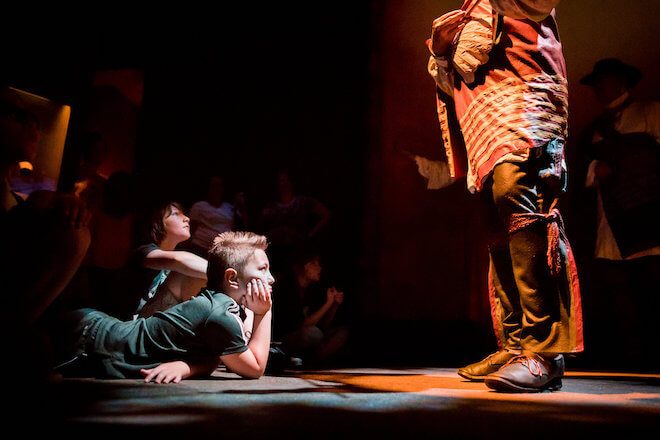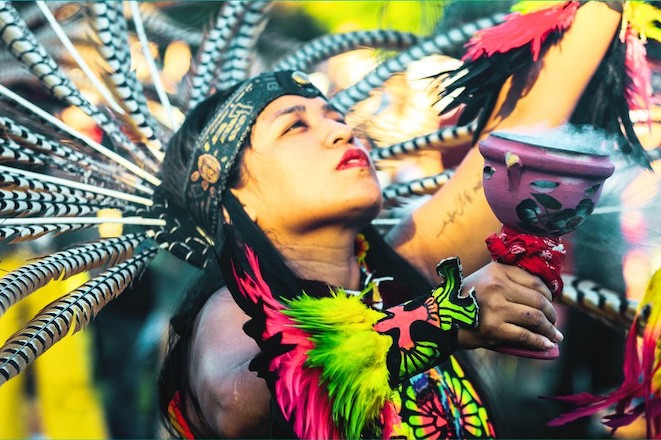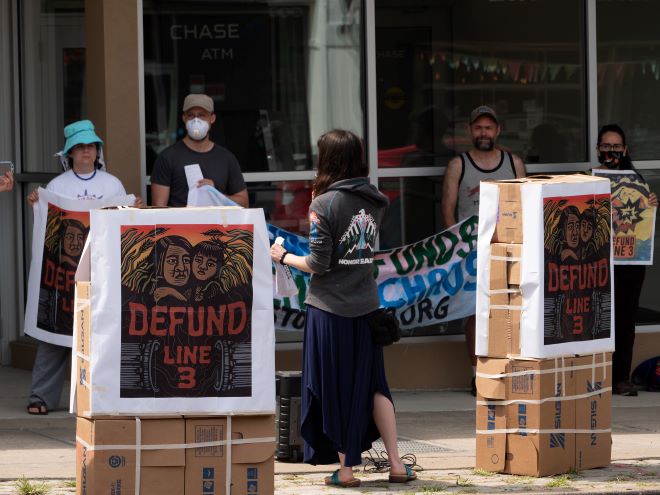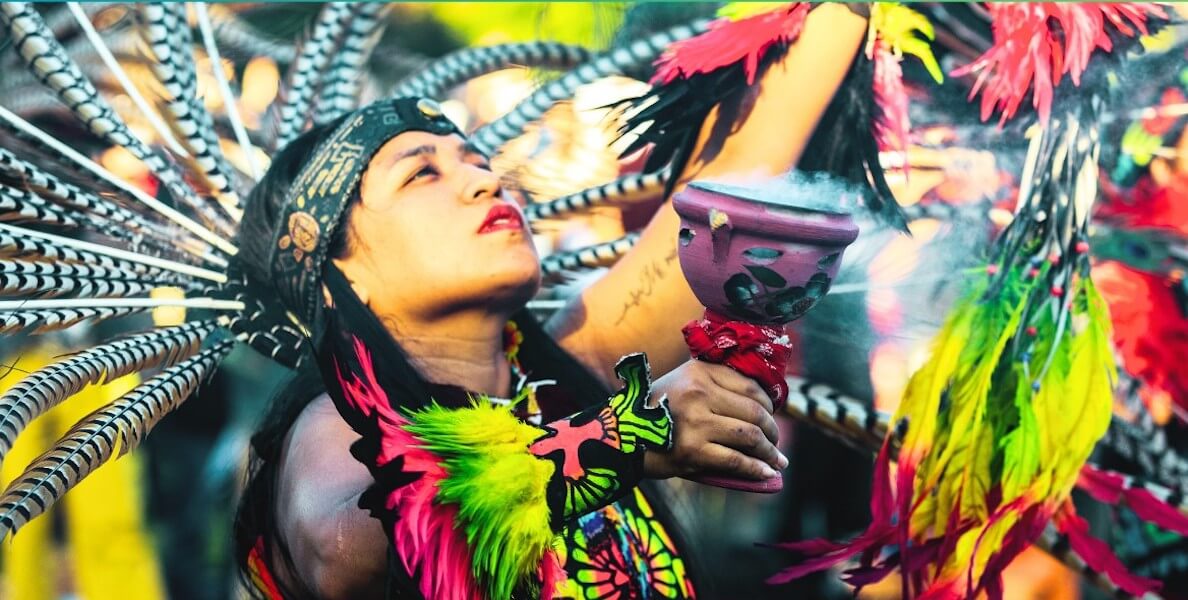Indigenous Peoples’ Day, Philadelphia-style happens for the third time on Monday (with events throughout the weekend), thanks to an executive order by Mayor Kenney in 2021 replacing Columbus Day with a celebration of Native Americans on the second Monday in October — an idea we suggested Philly should steal back in 2016.
Official or not, local Native Americans have long hosted celebrations of Indigenous cultures in Philly, and this year is another opportunity to learn from, engage with, and honor Indigenous People striving and thriving right here in our city and across the country.
For anyone looking to celebrate the weekend devoted to Indigenous People, Philadelphia has plenty to offer, Friday through Monday. But, long after that’s over, one way to honor our Native history is to recognize the Lenape tribes — the first people to occupy this region — as sovereign nations with rights to land in our state. Pennsylvania is one of about a dozen states that do not recognize a single tribe.
Below, ideas for ways to engage.
INDIGENOUS PEOPLES’ DAY IN PHILLY
1. Experience living history at the Museum of the American Revolution, October 7–9
The Old City attraction has always paid attention to Native Americans’ involvement in the Revolutionary War. This weekend, they add free performances of Lenape social dances on their outdoor plaza (October 8 at 11am and 3pm), and storytelling (October 8 at 1:30pm).

Inside, Kehala (Tuscarora Nation, Turtle Clan) and Jordan (Mohawk, Bear Clan) Smith meet one-on-one with visitors. Other special events include an all-day demonstration of Oneida beadwork, and a Wampum belt craft for kids in Revolution Place.
Admission $22-24 per adult, $19 senior, student and military, $13 ages 6-17, $2 ACCESS cardholder, free ages 5 & under. 101 S. 3rd Street. Tickets available here.
2. Celebrate at Bartram’s Garden, October 8
For their 13th annual commemoration of Indigenous Peoples’ Day, Bartram’s Garden isn’t just looking for people to celebrate: They’re looking for volunteers to set up, break down, and work in-between.
Otherwise, visitors can just come to enjoy the event, hosted by Ollin Yoliztli Calmecac, an educational organization based in South Philly working to spread awareness about the Indigenous peoples of Anahuac (North America), especially the Mexicayotl culture that flourished in pre-Colombian Mexico.
The family-friendly outdoor event features drummers, speakers, story time, and vendor artists.
Free and open to everyone, 9am to 7pm, 5400 Lindbergh Boulevard
3. Revel in Indigenous Arts at Shackamaxon, October 9
Indigenous Peoples’ Day Philly hosts their annual celebration at the site of the signing of the Shackamaxon Treaty (also known as Penn Treaty Park). This year, performers include Ontario’s Sky Dancers, storyteller Tchin, Andean folk music group Inkarayu, Aztec dance troupe Canpatlaneci, Native Nations Dance Theater, mutlitalented Marcus “Quese” Frejo, and Andean flutist Richie Olivera Flutes.

Suggested donation $10 (adults); $5 (kids); 11am to 5pm, Penn Treaty Park, 1301 N. Beach Street, Philadelphia. RSVP here or just show up.
4. Acknowledge Lenape land
Philadelphia is part of Lenapehoking — the region that spans from eastern Pennsylvania to the west edge of Connecticut and from the Hudson Valley to the northern tip of Delaware where the Lenape lived for many thousands of years.
Learn the history of how the Delaware tribes were displaced from Philadelphia, pushed off land that is still rightfully theirs according to many treaties including the Treaty of Shackamaxon signed by William Penn and Chief Tamanend.
“We meet on the broad pathway of good faith and good will. No advantage will be taken on either side. But all shall be openness and love. We are the same, as if one man’s body were divided into two parts,” Penn said.
“We will live in love with William Penn and his children as long as the creeks and rivers run and while the sun, moon and stars endure,” Tamanend said.
… so what happened?
5. Learn the real history
There are 67 National Historic Landmarks in Philadelphia, and not a single one acknowledges an Indigenous leader or significant events related to Indigenous people. And the narratives of the places we do acknowledge tend to leave out the darker truths.
The James Logan House (also called the Stenton House) in Germantown, for example, is where final negotiations were made regarding the Walking Purchase — which swindled the Lenape out of nearly a million acres of land, much of it along the Delaware River. Logan, William Penn’s former secretary and land agent and later mayor for whom our Logan Circle is named, forged a deed claiming that that the Munsee Indians (a Lenape sub-tribe that previously occupied the territory) had promised to sell Penn land in the Lehigh Valley — as much as could be walked in a day and a half.
Logan created an inaccurate map that underestimated the land likely to be walked in a day and a half to get the Lenape chief to sign; and he and the Penn brothers arranged to have paths cleared for their “walkers” who are said to have instead run, claiming about 70 miles. Then, anticipating the protests of the Lenapes, Logan arranged a deal with the Iroquois to prevent them from joining the Lenape in disputing the land grab.
… of course that’s just one horrendous example of thousands of pieces of our lesser-known history. Check out the virtual iteration of the Penn Museum’s past exhibit, Fulfilling a Prophecy: The Past and Present of the Lenape in Pennsylvania. (If you’re an educator, IPD Philly recommends reading Indigenous and Decolonizing Studies in Education.)
6. Read Indigenous literature
Read the works of Indigenous writers, including: Morgan L. Ridgway, Carla Messinger, Tommy Orange, Denise Low, Steven Newcomb, Robin Wall Kimmerer, and D.A. Lockhart. Get your copies at one of the country’s few Indigenous-owned bookstores.
7. Break down Stereotypes at the Penn Museum
The gallery Native American Voices seeks to bust stereotypes and highlight the contemporary topics important to many Native American and Canadian First Nations peoples: local Nations, sacred places, continuing celebrations, and new initiatives, and lets you experience them through the voices and work of leading Native American specialists.
Learn about local tribes; sacred lands across the country and the fight to access, reclaim and/or protect them; the meaning of celebrations like Powwows; and how Native activists are changing government policies to secure their right to self-governance as sovereign nations.
You can visit virtually by watching videos of Indigenous leaders and artists and checking out photos and descriptions of the objects that are part of the exhibit.
8. Support land defense movements
The Split Rock Sweetwater Prayer Camp in northeastern New Jersey was formed in solidarity with the Standing Rock Indian Reservation five years ago. Led by Ramapough Lenape Nation, the camp sits on a sacred site still utilized for significant family and seasonal ceremonies — for which they were just successful in securing a conservation agreement with the Rockland County Legislature to protect the site. Follow their continued efforts here.

Learn about the fight against Line 3, a proposed pipeline expansion to bring nearly a million barrels of tar sands per day from Alberta, Canada to Superior, Wisconsin, or the continuing fight the Lakota People’s Law Project is waging against the Dakota Access pipeline.
![]()
MORE GOOD THINGS IN PHILADELPHIA
Canpatlaneci, appearing at the Indigenous Peoples' Day celebration at Shackamaxon.


